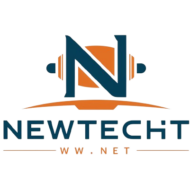Topics covered include time management, learning style, taking note, reading, math, vocabulary, writing and listening. Now that you have all the information you need in one place and have identified which facts and terms are most important, all you have to do is put everything together in a study guide. It can be done by hand, although it is easier on a computer because it can reorganize and reorganize on the go. Your study guide can take many forms, but the simplest and easiest is to make a list. List the concept and key terms and write below the important facts and definitions you should know using bullets.
(You may want to enter the amount of time you need to complete each task.) Make adjustments if necessary. For example, if you find that it takes longer to complete your work than you have available, you should probably classify your measurements. You must make decisions about your measurements based on what is treated in the classroom. You must read and write down all tasks of the favorite class font . This could be the textbook or a lecture that directly addresses the topic of the day.
This helps focus, keep track of your work and keep information. Organization and planning help you actively study your courses. When you study for a test, first organize your materials and then start your active assessment by subject . For example, collect all materials for a subject (p. E.g., PowerPoint notes, textbook notes, articles, tasks, etc.) and put them together in a stack.
Depending on the set, the website generates vocabulary cards, practice tests, combination games and even hearing tools. Quizlet also has a free app to learn on the go and even study offline. In a perfect world, your teacher would provide a study guide for each questionnaire, test and exam. And sometimes your teacher doesn’t give you a study guide.
By taking short breaks, you can rest and then return renewed as soon as you continue. While planning time to do homework helps with general procrastination, you sometimes come across a job that feels like a job. For some people they will be research work; for others, reading tasks or series of problems. However, you are busy enough because you have not added a class called “study skills”.’To save your time, we have compiled a list of our most useful study tips. When making a study schedule, look at your planner and consider what to achieve. Think about the types of questions asked about the exam and the topics covered so you know what to focus on.
Indeed, you apply the concepts you have learned, while remaining aware of the semantic indicators in the test. This is where your materials should support you in this process. Plan a schedule every day at the beginning of each semester to study and review the material. Even if your exams are months away, this will help you take responsibility. Determine if your list can be completed in the amount of time you have available.
Active listening, reading comprehension, taking notes, stress management, time management, testing and remembering are just some of the topics covered in our student study skills guides. Do you ever feel that your study habits just don’t diminish it?? Curious what you could do to perform better in class and on exams?? Many students realize that their high school study habits are not very effective in college. This is understandable, since the university is very different from high school. Teachers are less personally involved, classes are bigger, exams are worth more, reading is more intense and classes are much stricter.
Study one fight at a time or one chapter section at a time and then propose yourself a questionnaire. Ask yourself questions about what you just studied and even write your answers. When you track tasks, tests and events, planning time to study becomes much easier. Schooltraq is an online digital planner that controls the expiration dates. An alternative to the traditional paper calendar, this site ensures that you never miss your schedule while synchronizing between your phone and your computer.
When reading your study guide, try using it as a questionnaire sheet. Everything on your own personal review sheet can be confirmed as important. The recommended amount of time to study is 2 to 3 lecture notes hours per credit per week, from week 1. For a course of 3 units, this means, for example, 6-9 hours of study per week. Organize specific time blocks on days 1, 2, 3 and 4 for assessment sessions.
See reading as an important part of your previous study, but learning information requires active participation in the material . Active involvement is building the process of meaning from the text that includes making conference connections, forming examples and regulating your own learning . Active research does not mean that text is marked or underlined, memory is read or remembered again. While these activities can help you stay involved in the task, they are not considered active study techniques and are weakly related to better learning . Ordering your notes is most Alicia’s work in creating study guides.
